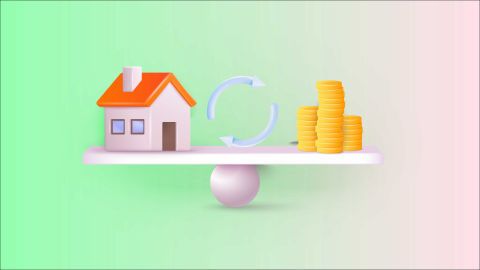If you're considering taking a home loan or already have one, it is important to understand the factors that influence your interest rate. One key factor is the repo rate, a method used by the central bank (Reserve Bank of India) to manage the country's monetary policy.
Did you know that the repo rate has a direct impact on your home loan interest rate? The repo rate (repurchase rate) is the rate of interest at which commercial banks and other financial institutions borrow money from the Reserve Bank of India (RBI). When there is inflation in the economy, the RBI increases the repo rate to de-incentivise banks to borrow from RBI.
Since the surplus cost is borne by the financial institutions, it also impacts the loan interest rates offered to its customers.
Let us explore how changes in the repo rate can impact your costs.
How repo rate influences home loan interest rate
The repo rate has a direct impact on the interest rates offered for various loans, including home loans. When the central bank reduces the repo rate, it becomes cheaper for financial institutions to borrow money. In this case, banks have the option to offer lower interest rates on loans to their customers, making borrowing more affordable for you.
However, when the central bank increases the repo rate, it becomes more expensive for financial institutions to borrow funds. In this case, banks will increase interest rates on loans including home loans to maintain profitability. Consequently, home buyers may get high interest on home loans with floating interest rates.
As a home loan borrower, you should monitor any changes in the repo rate. You should also stay in touch with your lender to understand how the changes may impact your floating interest rates. By keeping an eye on the repo rate and staying informed about market trends, you can make informed decisions about home loans. It is advisable to consult a financial adviser to secure the most favourable interest rate for your home loan.




